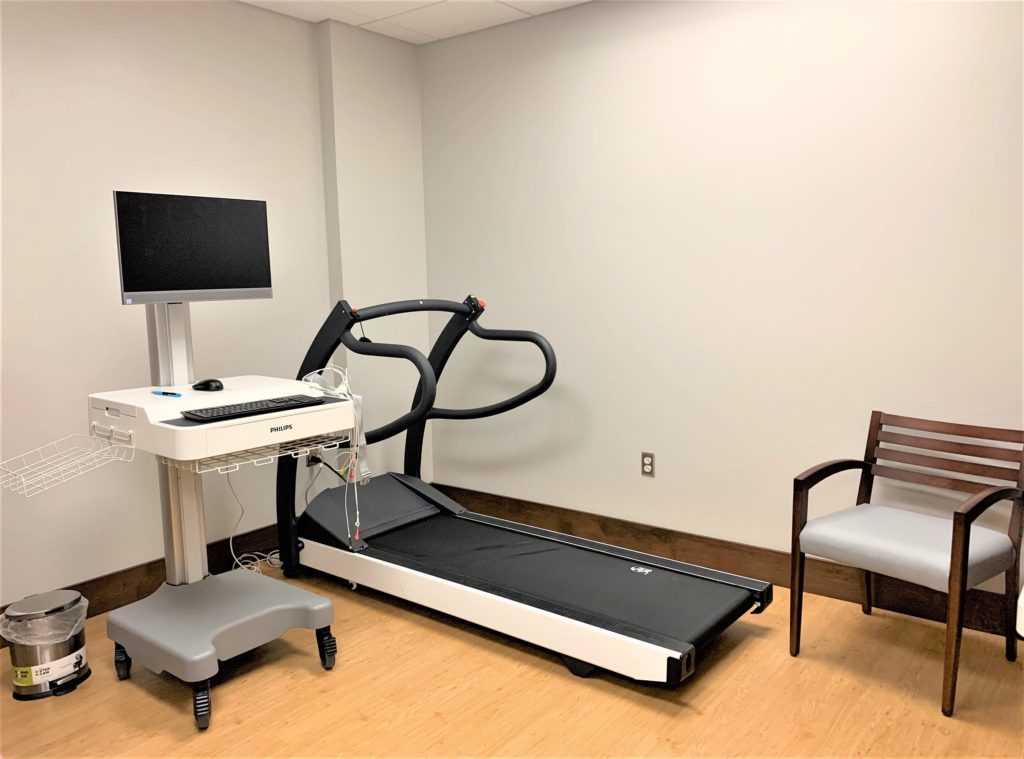What is an Exercise Stress test?
A stress test measures how well the heart works when it is beating fast and working hard. When the heart pumps fast, it needs more blood. A stress test helps doctors see if the heart is getting enough blood during these times. A stress test is sometimes called an “exercise stress test” or a “treadmill test” during which the ECG is continuously monitored.
Why might my doctor order a stress test?
Doctors usually order stress tests to check for problems that can happen when the heart works hard. Your doctor might order a stress test to:
- See if you have coronary heart disease, heart failure, or another heart condition – Coronary heart disease is a condition that puts you at risk for a heart attack and other types of heart disease. Some people have symptoms of coronary heart disease only when they exercise. Heart failure is a condition in which the heart doesn’t pump well.
- Check how well your heart works after heart surgery
- Help figure out why you have chest pain, trouble breathing, or other symptoms
- See if you can safely exercise after a heart attack
How do I prepare for a Stress test?
To prepare for a stress test, you will probably need to avoid eating, drinking, or smoking for 3 hours beforehand. If you are on any heart medicines, you might also need to change or stop some of them before the test. Your doctor or nurse should tell you if you need to change or stop any of your medicines.
For your stress test, you should wear comfortable clothes and shoes that you can exercise in. You should also bring any inhalers that you use to help your breathing.
What happens during a stress test?
For a stress test, the doctor, nurse, or technician will first do an ECG and measure your blood pressure. Then he or she will “stress” your heart and increase your heart rate by having you run or walk on a treadmill.
During your stress test, the doctor or nurse will watch you. He or she will check your blood pressure, do several ECGs, and ask how you feel. The test will end when you can’t exercise anymore or when your doctor tells you the test is over.
What are the downsides to a stress test?
A stress test can have some downsides. When people exercise and their heart pumps fast, they can have symptoms such as an abnormal heartbeat, trouble breathing, feeling dizzy or faint
